71 Results
NIH Ending the HIV Epidemic Projects Bridge Gaps Between HIV Research and Public Health Practice (VIDEO)
The National Institutes of Health recently issued $26M in awards to HIV research institutions in its fifth year supporting implementation science under the Ending the HIV Epidemic in the U.S. initiative. These awards are the latest investments in a program that is rapidly and rigorously generating evidence to inform the unified domestic HIV response by agencies in the Department of Health and Human Services.
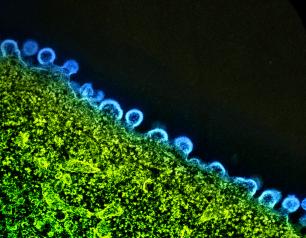
NIAID Renews Consortium for Food Allergy Research in Its 19th Year
NIAID has awarded 11 new cooperative agreements to support the Consortium for Food Allergy Research, or CoFAR, in the latest renewal of the program since its establishment 19 years ago. The institute expects to fund the awards with more than $11 million annually for seven years, contingent upon the availability of funds.
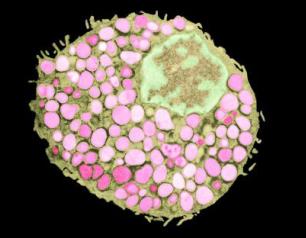
Experimental Ebola Vaccines Found Safe and Capable of Producing Immune Responses in Healthy Adults
Ebola viruses cause devastating disease in people, resulting in severe and often fatal hemorrhagic fever called Ebola virus disease. Of the four species of Ebola viruses that cause disease in people, Zaire ebolavirus (EBOV) and Sudan ebolavirus (SUDV) have caused more than 30 known outbreaks in the last century, killing more than half of those with the disease. Scientists at NIAID’s Vaccine Research Center (VRC) developed novel vaccines to combat these viruses, which were advanced to clinical trials in response to the 2014-2016 Ebola epidemic in the West African countries of Guinea, Liberia, and Sierra Leone. In two phase 1/1b trials conducted in the United States and Uganda, the researchers evaluated combinations of the experimental vaccines against Ebola disease in healthy adults, finding them safe, tolerable, and capable of producing immune responses. Comparisons between the different vaccine regimens revealed important data on how the vaccines could be administered in routine and outbreak settings. The results of the trials were published last week in npj Vaccines.
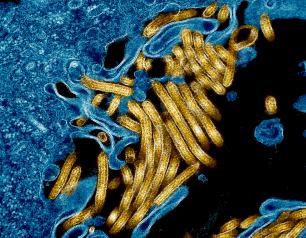
Wanted: Your Input for the NIAID 2025-2029 Strategic Plan
By Jeanne Marrazzo, M.D., M.P.H., NIAID Director
Now that I have spent the last six months learning about NIAID and getting to know the people and history that make NIAID special, I am even more excited and energized to plan for our next several years. In the years since NIAID prepared its last strategic plan, the institute—like the scientific community and the world at large—witnessed many changes...

Stem Cell Changes Rejuvenate Immune System in Aged Mice
Using a mouse model of human aging and disease, NIAID scientists and Stanford University colleagues have shown that immune systems of aged laboratory mice can be made more youthful and effective at fighting disease by depleting a subset of haematopoietic stem cells.
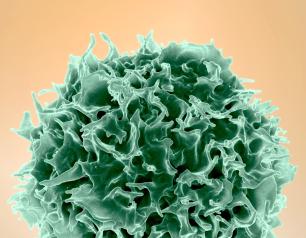
A Change in Drug Regimen is Associated with Temporary Increases in Dormant HIV
Switching to an antiretroviral therapy (ART) regimen containing the drug dolutegravir was associated with a significant temporary increase in reservoirs of latent HIV, according to a new analysis from a study in Uganda. HIV reservoirs are cells where HIV lies dormant and cannot be reached by the immune system or ART. They are central to HIV’s persistence, preventing current treatments from clearing the virus from the body.
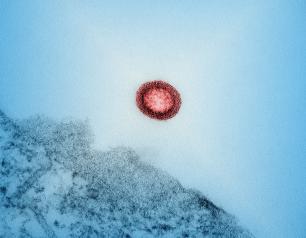
HIV Treatment Research and Key Takeaways: Dr. Dieffenbach’s Final Update from CROI 2024 (VIDEO)
On March 6 as the 2024 Conference on Retroviruses and Opportunistic Infections (CROI) was winding down, HIV.gov spoke with Carl Dieffenbach, Ph.D., director of NIAID's Division of AIDS, about highlights of long-acting HIV treatment research discussed at the conference. He spoke with Brian Minalga, M.S.W., deputy director of the NIH-supported Office of HIV/AIDS Network Coordination. Watch their conversation.

Centering Women and Girls’ Health in HIV Research
Women account for approximately 23 percent of people with HIV in the United States. In recent years, women aged 25 to 34 comprised the highest number of new diagnoses. Furthermore, Black women, transgender women, and women aged 13 through 24 are more likely to experience health disparities associated with lack of access to HIV testing, treatment, and prevention resources. This weekend marked National Women and Girls HIV/AIDS Awareness Day. NIAID supports research programs that focus on HIV and other health outcomes in women to inform and enable more targeted and effective HIV prevention, care, and treatment.
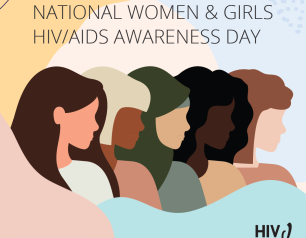
Promising Outcomes with HIV Treatment Started Promptly After Birth: Deborah Persaud Presents at CROI 2024 (VIDEO)
On the final day of the 2024 Conference on Retroviruses and Opportunistic Infections (CROI), HIV.gov spoke with Deborah Persaud, M.D., professor of Pediatrics at the Johns Hopkins University School of Medicine and director of the Division of Pediatric Infectious Diseases at Johns Hopkins Children's Center, who reported findings from a study about whether very early initiation of antiretroviral therapy (ART) may limit the establishment of HIV reservoirs in newborns, potentially enabling ART-free remission. Dr. Persaud spoke with Catey Laube of NIAID's Office of Communications and Government Relations. Watch their conversation.

Addressing Liver and Cardiovascular Disease among People with HIV and HIV Prevention During Pregnancy: Dr. Dieffenbach’s Second Update from CROI 2024 (VIDEO)
On Tuesday at the 2024 Conference on Retroviruses and Opportunistic Infections (CROI), HIV.gov spoke with Carl Dieffenbach, Ph.D., director of NIAID’s Division of AIDS, about research on common health complications of HIV and the safety of an HIV prevention tool during pregnancy. He spoke with Miss Molly Moon, M.S.W., Deputy Director of the NIH-supported Office of HIV/AIDS Network Coordination. Watch their conversation.

Doxy-PEP, HIV Vaccines and Community-Engaged Research: Discussions with Carl Dieffenbach and LaRon Nelson at CROI 2024 (VIDEO)
During the first full day of presentations at the 2024 Conference on Retroviruses and Opportunistic Infections, HIV.gov spoke with Carl Dieffenbach, Ph.D., director of NIAID’s Division of AIDS, and LaRon Nelson, Ph.D., R.N., F.N.P., F.N.A.P., F.N.Y.A.M., F.A.A., professor and associate dean at the Yale School of Nursing. They discussed Doxy-PEP for STI prevention, HIV vaccines, community engagement in research, and more. Watch their discussions.

NIAID’s Dr. Jeanne Marrazzo Previews CROI 2024 (VIDEO)
HIV.gov opened their coverage of the 2024 Conference on Retroviruses and Opportunistic Infections (CROI) today with a conversation with NIAID Director Jeanne Marrazzo, M.D., M.P.H. She spoke with Miguel Gomez, director of HIV.gov about what she’s looking forward to hearing about at the conference, how the studies presented at research conferences ultimately get translated into clinical practice or HIV prevention or treatment services, and the important roles of early-career investigators. Watch their conversation with Dr. Marrazzo.

Toward a Deeper Understanding of Effective Oral HIV Pre-Exposure Prophylaxis Use in Cisgender Women
Pivotal studies supported by NIAID demonstrated that oral pre-exposure prophylaxis (PrEP) reduces an individual’s likelihood of acquiring HIV through sex by up to 99% when taken as prescribed. Research has revealed important differences in individual and population-group preferences in oral PrEP use, particularly that cisgender women participating in studies often did not take oral PrEP as prescribed—and the intervention’s effectiveness declined when doses were taken less frequently. Jeanne Marrazzo, M.D., M.P.H. and colleagues conducted a pooled analysis of data from post-marketing demonstration projects to to characterize the relationship between oral PrEP use and its efficacy among cisgender women.
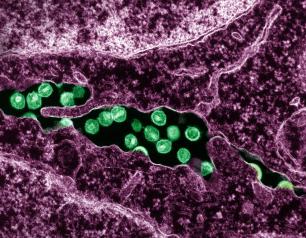
New Guidelines for Use of Statins by People with HIV to Prevent Cardiovascular Events
The Department of Health and Human Services Guidelines Panel for the Use of Antiretroviral Agents in Adults and Adolescents with HIV (the Panel) has developed recommendations for the use of statin therapy in people with HIV, in collaboration with representatives from the American College of Cardiology, the American Heart Association, and the HIV Medicine Association.
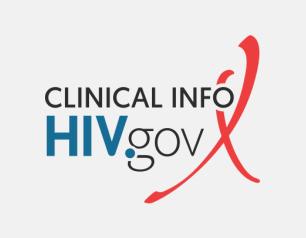
NIAID Team Recognized for Excellence in Technology Transfer
A multi-disciplinary NIAID team has received an Excellence in Technology Transfer Award for work that led to the treatment of the rare disease known as PASLI/APDS. The Federal Laboratory Consortium for Technology Transfer (FLC) award honors outstanding work by federal laboratories that collaborate with industry, academia or other labs to bring technologies from the bench to the marketplace.
In 2013...
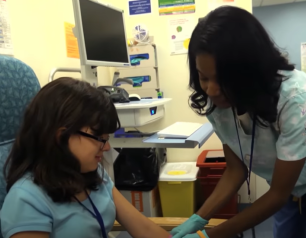
NIAID and Cuban Scientists Gather to Discuss Global Health Challenges
Recent disease outbreaks in the Americas led U.S. and Cuban scientists to hold a meeting Feb. 14-16 on Addressing Global Health Challenges Through Scientific Innovation and Biomedical Research.
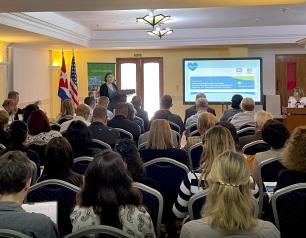
Novel CMV Vaccine Generates Stronger Response in Key Immune Cells Than Previous Candidate
A messenger RNA (mRNA) vaccine designed to prevent human cytomegalovirus (CMV) elicited long-lasting CMV-specific responses from several types of immune cells, outperforming a previous vaccine concept in multiple measures in a NIAID-supported laboratory study. The findings were published in the Journal of Infectious Diseases.
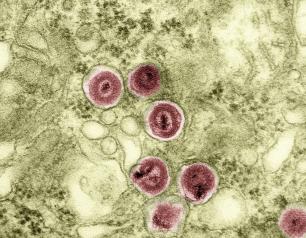
Working Together to End HIV in Black Communities
Health inequities and disparities disproportionately affect Black people and other historically marginalized groups at above average rates. NIAID highlights ongoing efforts to reduce the burden of HIV among Black Americans while increasing the representation of Black communities and researchers in HIV science.
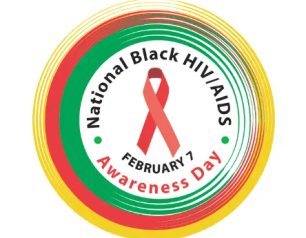
New Model for Norovirus Offers Promising Path Towards Countermeasure Development
Norovirus, a highly infectious virus that is the leading cause of diarrhea and vomiting in the U.S., has no approved therapeutics or vaccines to prevent its miserable effects. This is partly due to a lack of reliable animal models to study norovirus infection and predict how effective interventions would be in people.
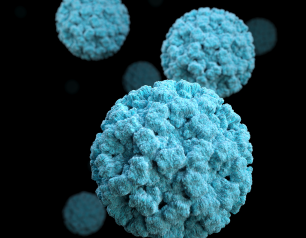
World Neglected Tropical Diseases Day – Focus on Leishmaniasis
World Neglected Tropical Diseases (NTD) Day offers an opportunity to reflect on recent strides in tropical disease research and the work that remains. NIAID conducts and supports work on a wide variety of diseases—some of which rarely make headlines but cause immense suffering. An example of this is leishmaniasis, a parasitic disease that sickens hundreds of thousands of people each year, mostly in equatorial regions of the globe. In recent years, NIAID has made significant efforts to study the parasite that causes the disease and find new ways to battle it.
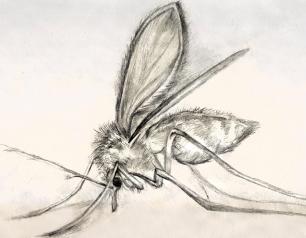
In People with Stable Lupus, Tapering Immunosuppressant Linked to Low Flare Risk
In people with a form of lupus called systemic lupus erythematosus (SLE), the risk for a severe flare-up of disease was low for both individuals who tapered off long-term immunosuppressive therapy and those who remained on it, a clinical trial has found. The National Institute of Allergy and Infectious Diseases (NIAID), part of the National Institutes of Health, sponsored and funded the trial. The findings were reported today in the journal The Lancet Rheumatology.


